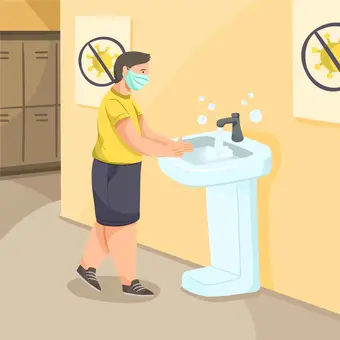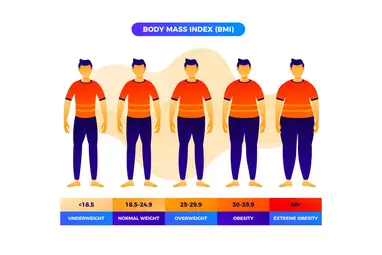7 Ways to Prevent Vitamin A Deficiency

7 Ways to Prevent Vitamin A Deficiency
Posted on 27th Apr, 2023
Have you ever noticed that the letter "A" is always at the beginning of the alphabet? Well, just like in the alphabet, vitamin A plays a crucial role in our body too! It is an essential nutrient that is vital for maintaining overall health.
From maintaining good vision to supporting the immune system and aiding in growth and development, vitamin A is a true multitasker.
Unfortunately, many people suffer from vitamin A deficiency, which can lead to various health issues. But don't worry, in this article, we will discuss how to prevent vitamin A deficiency and promote optimal health. So, let's dive in!
Why is Vitamin A essential for health?
Vitamin A is necessary for many critical functions in the body. It is important for maintaining healthy vision, as it helps to form the cells that make up the retina. It also supports the immune system, helping to fight off infections and diseases.
Additionally, Vitamin A plays a role in growth and development, including fetal development and childhood growth. Without enough Vitamin A, the body cannot perform these vital functions effectively, leading to a variety of health issues.
What are some Vitamin A deficiencies?
Vitamin A deficiency can manifest in a variety of ways, including:
Vision problems
Night blindness, which is the inability to see in low light conditions, is a common symptom of Vitamin A deficiency.
Skin issues
Vitamin A is essential for maintaining healthy skin, otherwise, the deficiency can lead to dry, rough, or flaky skin.
Infertility
Vitamin A is essential for both male and female reproductive health, and a deficiency can lead to infertility.
Growth Issues
Vitamin A is important for childhood growth and development, and a deficiency can lead to stunted growth and development.
Dry hair
A deficiency in Vitamin A can lead to dry hairs and in fact, the deficiency also leads to brittle nails.
Respiratory Tract Infections
Vitamin A plays a crucial role in maintaining healthy mucous membranes, which help to protect against respiratory tract infections.
How to prevent Vitamin A deficiency?
Vitamin A plays a crucial role in maintaining healthy mucous membranes, which help to protect against respiratory tract infections.
Diagnosis:

If you suspect any of the symptoms of Vitamin A deficiency, including dry skin, night blindness, or vision problem, the first step should be to get your vitamin A level checked. The most common way to diagnose a Vitamin A deficiency is through a serum retinol blood test. This test measures the level of Vitamin A in the blood.
Additionally, an electrography test can be done to assess the function of the eyes in low-light conditions, which are mostly affected by a Vitamin A deficiency.
Vitamin A supplements

If you are diagnosed with a Vitamin A deficiency, taking Vitamin A supplements, such as cod liver oil capsules, and oral or injectable supplements, can help increase your intake and replenish Vitamin A deficiencies.
Healthy diets with Vitamin A rich food:

One of the easiest ways to prevent Vitamin A deficiency is to maintain a healthy diet that is rich in Vitamin A. Foods like liver, egg yolks, dairy products, and orange and yellow fruits and vegetables (such as carrots, sweet potatoes, and mangoes) are all excellent sources of Vitamin A.
Including Fortified foods:

The other way to prevent Vitamin A deficiency is using fortified foods with Vitamin A, such as milk, sugars, and cereal, to help combat deficiencies in populations.
Avoiding low-fat diet:

Vitamin A is a fat-soluble vitamin, which means that it is best absorbed when consumed with fat. It is important to include healthy fats in your diet to ensure that your body can absorb Vitamin A effectively.
Breastfeeding:

Breast milk is rich in Vitamin A, and Infants who have breastfed exclusively for the first six months of their birth receive an adequate amount of Vitamin A. Hence, feeding is an important way to prevent Vitamin A deficiency and it can be done from the time of birth.
Improved Sanitation:

Practicing proper sanitation and hygiene is one of the most effective ways to eradicate Vitamin A deficiency as Infections and other illnesses can easily interfere with the absorption and utilization of nutrients in the body. Hence, maintaining proper hygiene can reduce the risk of infections that can lead to the depletion of Vitamin A stores.
Conclusion
Vitamin A plays an important role in maintaining overall health. It is necessary for healthy vision, immune function, and proper timely growth and development. If not taken care of, Vitamin A deficiency can lead to a variety of health problems, including vision problems, skin issues, infertility, growth issues, dry hair, and respiratory
However, prevention is the only key when it comes to Vitamin A deficiency. By maintaining a healthy diet, taking supplements if needed, and practicing good hygiene and sanitation, you can help ensure that your body has enough Vitamin A to support optimal health.

Health articles from our experts

List of Top 10 Bodybuilding Supplements For Muscle Gains

List of 15 Best Gut-Friendly Foods

Top Six Indian Recipes for Weight Loss

A Comprehensive Guide On How To Gain Weight Quickly

Muscle-Building Routine and Supplements for Maximum Gains

A Guide with Simple Tips To Follow For Weight Loss

Top 10 Foods That Are High in Protein

5 Best Whey Protein Powders in India

Understanding BMI: The Key to Weight-Health Connection






